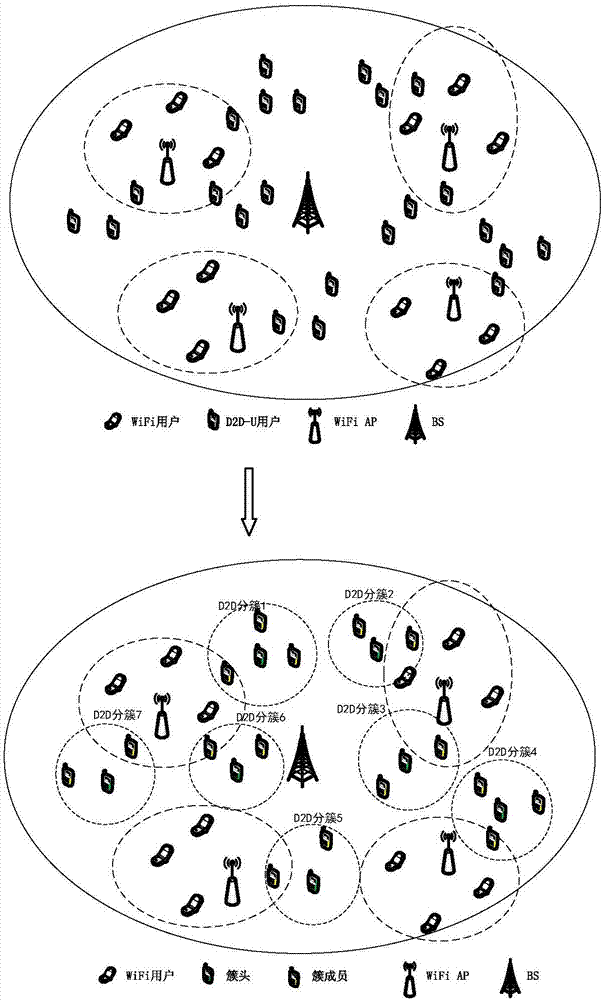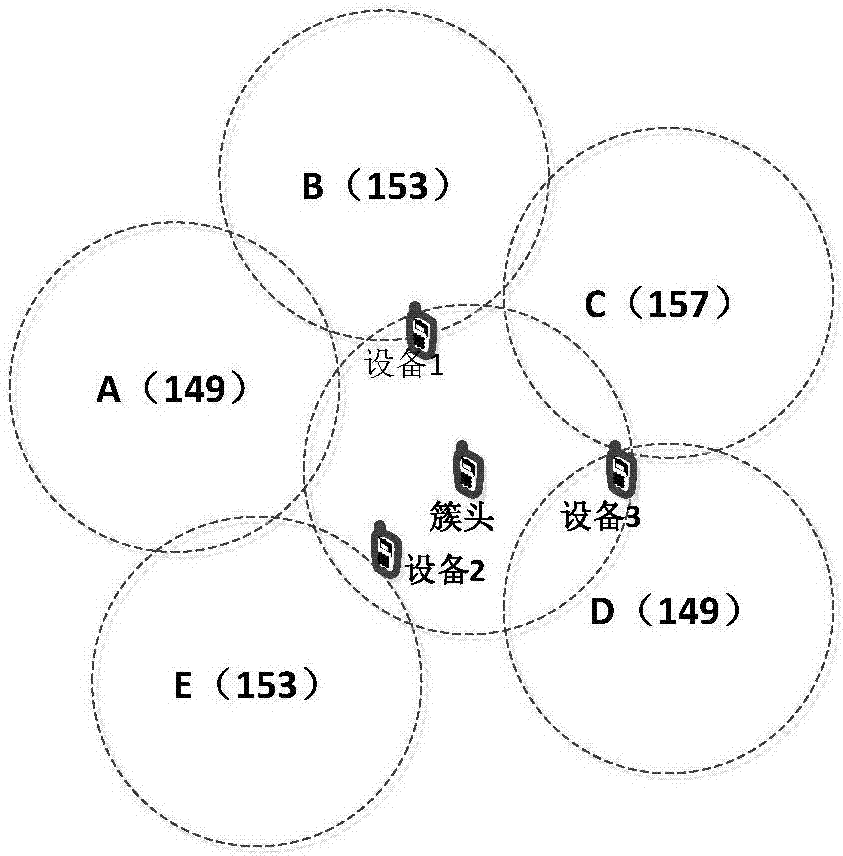Method for channel allocation in D2D (device to device) communications with unlicensed spectrum and WiFi coexisting
An unlicensed frequency band and channel allocation technology, applied in wireless communication, wireless communication services, electrical components, etc., can solve problems such as non-standardization, difficulty in channel reuse, and reduced WiFi system performance, and achieve the effect of improving performance
- Summary
- Abstract
- Description
- Claims
- Application Information
AI Technical Summary
Problems solved by technology
Method used
Image
Examples
Embodiment 1
[0069] In order to improve the system capacity and ensure the fair coexistence of D2D-U and WiFi, the embodiment of the present invention proposes a cluster-based distributed channel selection mechanism:
[0070] 1) Cluster selection channel. The D2D-U devices are clustered based on the distance. After the clusters are formed, the working channels in the clusters are dynamically adjusted according to the spectrum environment around the clusters: the idle unlicensed spectrum resources can be fully utilized, and the interference with WiFi can also be reduced. , as much as possible to improve communication performance, to achieve a win-win situation.
[0071] 2) The cluster heads compete for the channel. After the working channel in each cluster is selected, the cluster head will use the LBT (Listen Before Talk, Listen Before Talk) mechanism to compete for channel access on behalf of the cluster. After the channel competition is successful, the D2D-U devices in the cluster will ...
PUM
 Login to View More
Login to View More Abstract
Description
Claims
Application Information
 Login to View More
Login to View More - R&D
- Intellectual Property
- Life Sciences
- Materials
- Tech Scout
- Unparalleled Data Quality
- Higher Quality Content
- 60% Fewer Hallucinations
Browse by: Latest US Patents, China's latest patents, Technical Efficacy Thesaurus, Application Domain, Technology Topic, Popular Technical Reports.
© 2025 PatSnap. All rights reserved.Legal|Privacy policy|Modern Slavery Act Transparency Statement|Sitemap|About US| Contact US: help@patsnap.com



